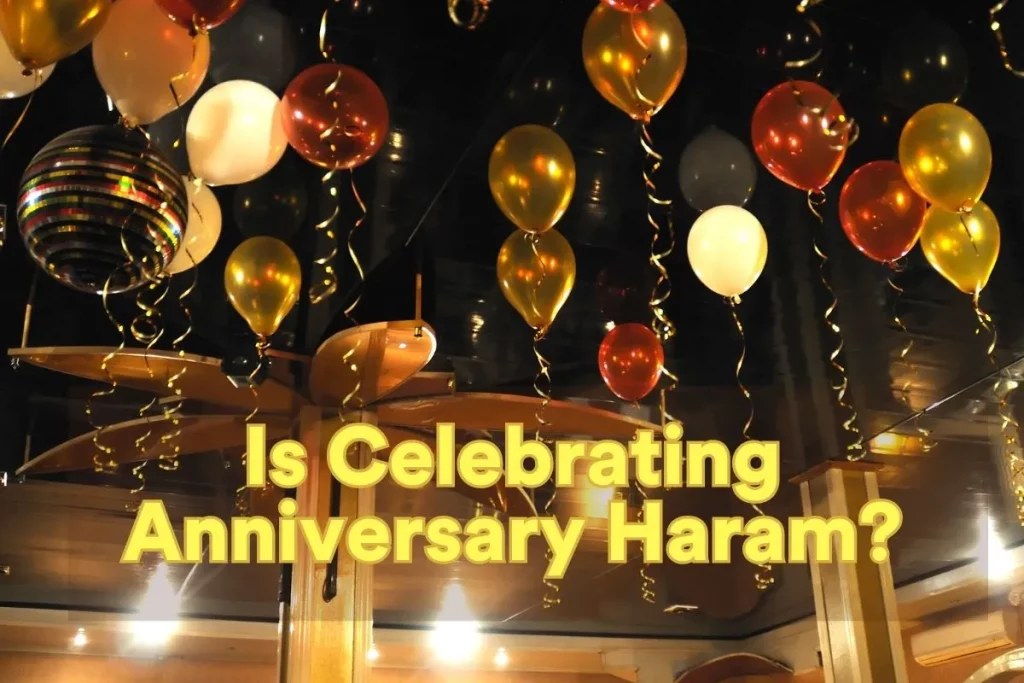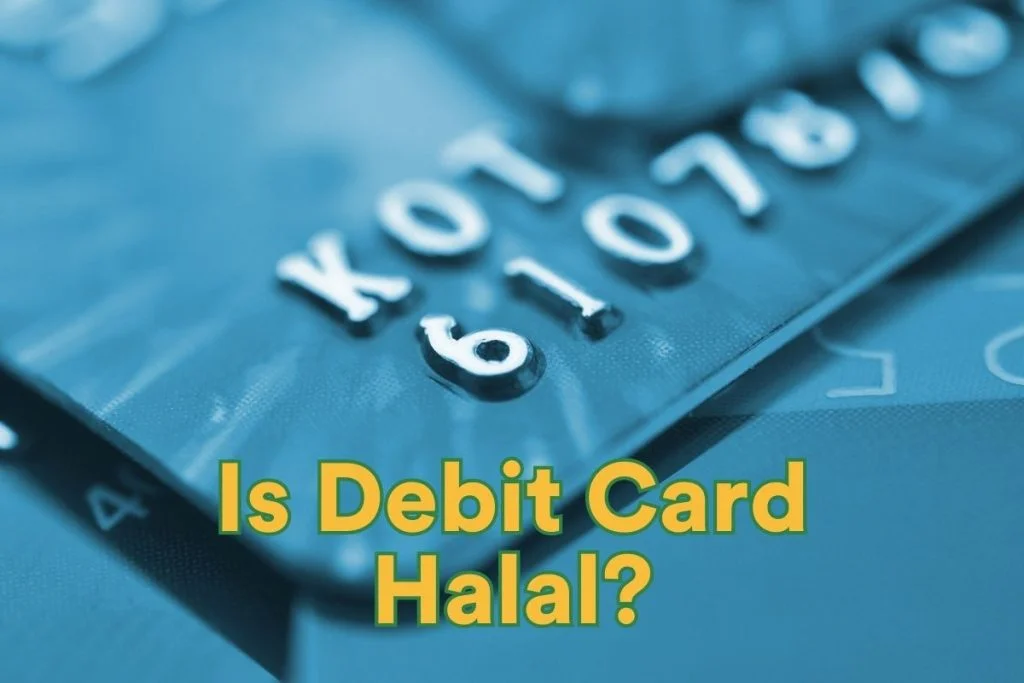In the tapestry of cultural celebrations, one thread that weaves through societies around the world is the observance of anniversaries. From weddings to milestones, these commemorations hold a significant place in contemporary society.
However, as cultures evolve and intermingle, questions arise about the compatibility of certain celebrations with religious beliefs. This prompts us to explore a fundamental question: Is celebrating anniversary considered haram within the context of Islamic teachings?
- Key Takeaways
- The Historical Roots of Celebrating Anniversaries
- Modern Anniversary Celebrations
- Islamic Teachings and the Essence of Celebrations
- Scholars' Views on Anniversary Celebrations
- Analyzing the Permissibility: Cultural Practices and Religious Values
- Is Celebrating Anniversary Haram?
- Final Thought
- FAQ
Key Takeaways
| 📌 Historical Evolution: Anniversary celebrations have deep historical roots, originating from ancient civilizations that marked significant events with rituals and festivities. |
| 📌 Islamic Perspective: Islam encourages celebrations aligned with gratitude and unity, provided they adhere to Islamic values and principles. |
| 📌 Guidelines to Follow: Sharia regulations should be observed during anniversary celebrations, ensuring modesty, decency, and separation between unrelated men and women. |
The Historical Roots of Celebrating Anniversaries
The historical origins of anniversary celebrations reveal a rich tapestry woven across centuries and cultures. To grasp the ongoing debate surrounding their permissibility, a journey into the past is essential. Tracing back through time, we find that the concept of commemorating significant dates has roots deep within human history.
Ancient civilizations, such as the Egyptians and Romans, celebrated pivotal moments with rituals and gatherings. The Egyptians marked the reigns of pharaohs with grand festivities, reflecting their appreciation for significant achievements. Similarly, the Roman calendar reserved special days for the commemoration of founding events, emphasizing the importance of acknowledging historical milestones.
These early traditions, steeped in cultural significance, laid the cornerstone for contemporary anniversary observances. The practice of recognizing important events, be they royal reigns or foundational moments, has endured through time, evolving to encompass personal milestones like weddings and marriage anniversaries.
The evolution from ancient rituals to modern celebrations highlights the universal human inclination to honor significant moments. Whether through elaborate ceremonies or intimate gatherings, the act of acknowledging the past remains a timeless endeavor, connecting us with our history and shaping the way we commemorate milestones today.
Modern Anniversary Celebrations

In the contemporary landscape, anniversary celebrations have undergone a remarkable evolution, blossoming into intricate expressions of culture, affection, and togetherness. Within the fabric of today’s world, these celebrations have transcended mere dates to become vibrant reflections of love and unity. Whether it’s the sacred union of marriage, pivotal milestones within marriages, or other significant life junctures, these events are now adorned with festivities that resonate deeply.
Such celebrations are characterized by a symphony of emotions, where heartfelt speeches, jubilant gatherings, and cherished memories intertwine. These occasions not only celebrate individual journeys but also weave a tapestry of shared experiences, values, and traditions. Their influence reverberates far beyond personal lives, revering the essence of relationships and bolstering the unity of communities.
In this contemporary context, anniversary celebrations embrace cultural diversity and serve as platforms for the preservation and dissemination of cultural values. They stand as an embodiment of unity, solidifying the bonds of kinship, friendship, and communal harmony.
Islamic Teachings and the Essence of Celebrations
Within the realm of Islam, celebrations are not only accepted but also encouraged, provided they align with Islamic principles. Gratitude occupies a central place in Islamic spirituality, emphasized by Quranic verses and Hadiths that stress the importance of recognizing and acknowledging blessings. Celebrating milestones, such as anniversaries, offers an opportunity to express gratitude for the relationships and experiences that shape our lives.
The Quran states in Surah Ibrahim:
وَإِذْ تَأَذَّنَ رَبُّكُمْ لَئِن شَكَرْتُمْ لَأَزِيدَنَّكُمْ ۖ وَلَئِن كَفَرْتُمْ إِنَّ عَذَابِى لَشَدِيدٌۭ
And ˹remember˺ when your Lord proclaimed, ‘If you are grateful, I will certainly give you more. But if you are ungrateful, surely My punishment is severe.’”
This verse underscores the significance of gratitude in Islam and suggests that celebrating anniversaries can be a means of increasing blessings when approached with sincerity.
Scholars’ Views on Anniversary Celebrations
The opinions of Islamic scholars regarding the permissibility of celebrating anniversaries vary, reflecting the diversity within Islamic jurisprudence. Some scholars emphasize the importance of expressing gratitude for blessings through celebrations, highlighting the alignment of this practice with Islamic values. Others advise caution, especially if celebrations veer into excessiveness or imitate non-Islamic customs.
Analyzing the Permissibility: Cultural Practices and Religious Values
The question that lingers is whether celebrating anniversaries contradicts Islamic teachings. The answer hinges on a nuanced examination of intentions, cultural practices, and alignment with religious values. Balancing the joy of celebration with the principles of Islam requires thoughtful consideration and introspection.
It’s essential to distinguish between cultural practices and religious obligations. While certain customs associated with anniversary celebrations might align with Islamic values, others might raise concerns. Striving for moderation and aligning celebrations with gratitude and unity can help navigate the fine line between cultural expressions and religious principles.
Whether celebrating a wedding anniversary, observing the Mawlid, or ringing in New Year’s Eve, Muslims can find harmony between cultural expressions and their faith. The interplay of tradition and faith is a dynamic process that underscores the beauty of human diversity within the framework of Islam.
Is Celebrating Anniversary Haram?
It is permissible for a Muslim to partake in commemorating significant events, including occasions like birthdays, graduations, and wedding anniversaries. This practice is viewed as a means of expressing happiness for the blessings and favors bestowed by Allah. These celebrations are aligned with Islamic principles and are considered lawful expressions of gratitude and joy.
Allah stated in Quran:
قُلْ بِفَضْلِ ٱللَّهِ وَبِرَحْمَتِهِۦ فَبِذَٰلِكَ فَلْيَفْرَحُوا۟ هُوَ خَيْرٌۭ مِّمَّا يَجْمَعُونَ
Say, ˹O Prophet,˺ “In Allah’s grace and mercy let them rejoice. That is far better than whatever ˹wealth˺ they amass.”
However, it’s important to observe Sharia regulations when commemorating an anniversary. Here are some guidelines to bear in mind:
- Refrain from engaging in actions that go against Islamic principles.
- Avoid any mingling between men and women who are not closely related.
- Women should adhere to the Islamic dress code and refrain from exposing their private parts.
- Uphold modesty and decency.
- Ensure that there is a clear sense of privacy and separation between men and women during the celebration.
Final Thought
In conclusion, while celebrating anniversaries is allowed in Islam, individuals should be mindful of the specific rituals and practices they engage in during these celebrations. Avoiding prohibited practices and adhering to Islamic principles of modesty, decency, and gratitude ensures that anniversary celebrations remain aligned with the teachings of Islam.
Allahu A’lam (Allah knows best)
FAQ
Are anniversary celebrations allowed in Islam?
Yes, anniversary celebrations are generally allowed in Islam. These celebrations are seen as a way to express joy and gratitude for the blessings and milestones in one’s life. Islam encourages believers to be grateful for the favors and bounties that Allah has bestowed upon them.
Celebrating anniversaries, such as birthdays, weddings, and other significant life events, is considered a lawful expression of happiness and thankfulness within the framework of Islamic teachings.
However, it’s important to note that while anniversary celebrations are allowed, they must be conducted within the boundaries of Islamic principles. For instance, maintaining modesty and adhering to proper Islamic dress codes are important aspects of any celebration.
Additionally, it’s essential to avoid behaviors that are contrary to Islamic values, such as excessive extravagance, immodesty, or inappropriate mixing between unrelated men and women.
Can anniversary celebrations promote unity and gratitude in Islam?
Yes, anniversary celebrations can indeed promote unity and gratitude in Islam. Islam places a strong emphasis on fostering a sense of community and gratitude among its followers, and anniversary celebrations can serve as a means to achieve these goals.
- Promoting Unity: Anniversary celebrations provide an opportunity for families, friends, and communities to come together and celebrate shared experiences and milestones. These gatherings strengthen the bonds of kinship, friendship, and communal harmony, fostering a sense of unity among individuals. By celebrating together, people acknowledge the importance of relationships and create lasting memories that contribute to a sense of togetherness.
- Expressing Gratitude: Gratitude is a fundamental principle in Islam. The Quran and Hadiths emphasize the importance of recognizing and acknowledging the blessings bestowed by Allah. Anniversary celebrations offer a platform to express gratitude for the blessings of relationships, experiences, and moments that shape individuals’ lives. By commemorating these milestones, believers demonstrate their thankfulness for the experiences that Allah has granted them.
- Preserving Cultural Values: Many anniversary celebrations are deeply rooted in cultural traditions and customs. Islam encourages the preservation of positive cultural values as long as they do not contradict Islamic teachings. Celebrating anniversaries while upholding Islamic principles allows individuals to cherish their cultural heritage while also adhering to their faith.
- Strengthening Family Ties: Family is a cornerstone of Islamic society, and anniversary celebrations can strengthen family ties and relationships. Celebrating marriage anniversaries, for example, provides couples with an opportunity to reflect on their journey together, express appreciation for each other, and renew their commitment to their marital bond. This, in turn, contributes to a strong foundation for families and communities.
- Reflecting Islamic Values: When anniversary celebrations are conducted with sincerity and in alignment with Islamic values, they can serve as a reflection of the core teachings of Islam. Expressing gratitude, fostering unity, and adhering to modesty are all values that Islam promotes. By incorporating these principles into anniversary celebrations, individuals can demonstrate their commitment to their faith even in moments of joy and celebration.
Are there any specific rituals that are not allowed in anniversary celebrations?
Yes, while anniversary celebrations are permissible in Islam, there are certain rituals and practices that should be avoided to ensure alignment with Islamic principles. It’s important to exercise caution and make informed choices to prevent engaging in activities that may conflict with Islamic beliefs.
Here are some specific rituals or actions that are not allowed in anniversary celebrations:
- Excessive Mixing of Genders: One of the primary concerns in Islamic gatherings is the mixing of unrelated men and women. The excessive intermingling of genders can lead to immodesty and compromise the principles of modesty and decency prescribed by Islam. During anniversary celebrations, it is essential to maintain a level of separation between men and women who are not closely related to uphold the boundaries of Islamic etiquette.
- Inappropriate Dress Code: Islamic teachings emphasize the importance of modesty in dress. During anniversary celebrations, individuals should adhere to the Islamic dress code, ensuring that their clothing covers their awrah (private parts) and does not reveal excessive skin. Women, in particular, should avoid wearing clothing that is immodest or exposes their private areas.
- Loud Music and Entertainment: Islam encourages an environment of modesty, dignity, and mindfulness. Engaging in loud music, inappropriate entertainment, or activities that promote indecency is discouraged. Anniversary celebrations should prioritize wholesome entertainment that is free from vulgarity, excessive noise, and behavior that goes against Islamic values.
- Extravagance and Wastefulness: Islam promotes moderation and discourages extravagance and wastefulness. Celebrating anniversaries should not involve excessive spending, lavish displays, or extravagant feasts that lead to unnecessary waste. It’s important to strike a balance between celebrating joyfully and adhering to the principles of simplicity and moderation.
- Lack of Gratitude and Remembrance of Allah: While celebrating, it’s essential to maintain a connection with Allah through gratitude and remembrance. Engaging in excessive worldly pleasures without acknowledging Allah’s blessings can lead to heedlessness. Balancing celebration with acts of worship, such as offering gratitude to Allah, reciting Quranic verses, and engaging in prayers, can help maintain a spiritual connection.
- Is Pop Tarts Halal? What You Need to Know - February 18, 2024
- Are Graham Crackers Halal in Islam? - January 19, 2024
- Is Keebler Wheatables Halal? - January 18, 2024





